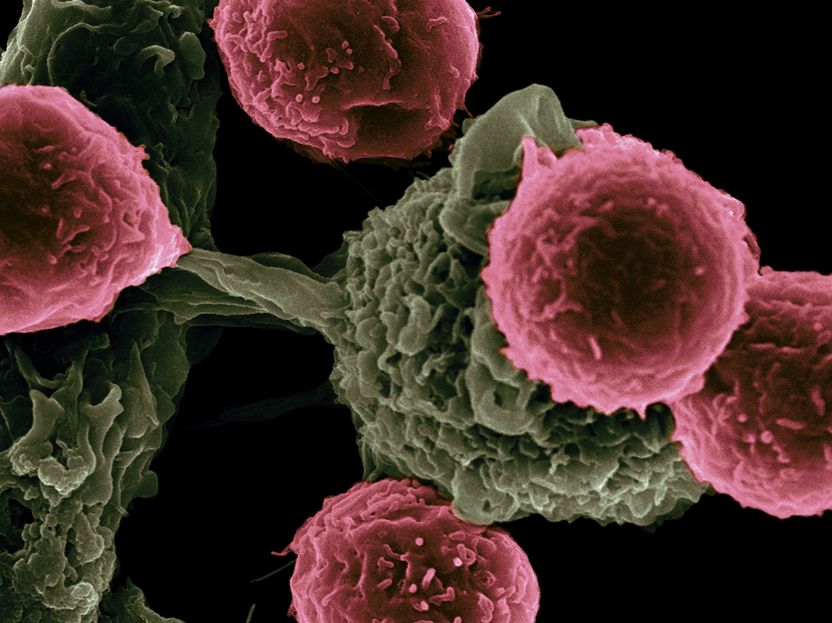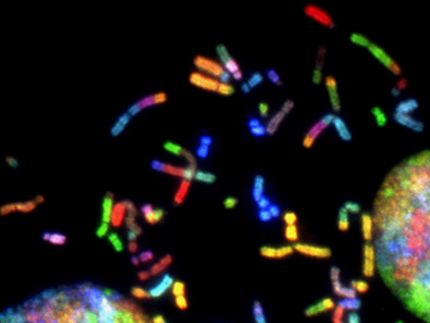Well-known cancer driver with new functions
In connection with the spread of tumors, the transcription factor SNAIL is an old acquaintance. Scientists from the German Consortium for Translational cancer research (DKTK) and the Technical University of Munich (TUM) are now publishing a previously undescribed function of the factor: In a certain form of pancreatic cancer, SNAIL dramatically accelerates cancer growth by driving the cell cycle and bypassing senescence. These newly discovered functions of SNAIL in laboratory experiments may be curbed by targeted agents.

Foto von National Cancer Institute auf Unsplash
In the DKTK, the German Cancer Research Center (DKFZ) in Heidelberg, as the core center, joins forces in the long term with university partner sites in Germany that are particularly renowned for oncology.
Cancer of the pancreas still has an extremely poor prognosis: barely ten percent of patients survive the first five years after diagnosis. Doctors and scientists are therefore urgently looking for new ways to stop the disease more successfully than before. In this context, they are looking for subtypes of the disease that differ in their response to active substances on the basis of certain molecular properties.
Dieter Saur, DKTK Professor of Translational Tumor Research at TUM's DKTK partner site in Munich, is investigating the role of the transcription factor SNAIL in the development and progression of various tumors. About 70 percent of all pancreatic cancers overexpress SNAIL - as do numerous other cancers. It is known that SNAIL triggers a developmental program in cells known as "EMT," which increases the aggressiveness of tumors and promotes metastasis. In this process, the cells transform from so-called epithelial cells into a connective tissue-like developmental stage: mesenchymal cells.
Based on previous experiments, Saur and colleagues suspected that in certain cases SNAIL may also drive cancer through other molecular signaling pathways. To confirm this suspicion, Saur's team examined the role of SNAIL in different types of cancer, using both mouse models and human tumor cell lines, each of which differed in their primary genetic driver mutations.
While SNAIL overexpression was actually rather protective in certain intestinal tumor models, it dramatically accelerated tumor growth in pancreatic cancers driven by the KRAS oncogene. However, the cancer cells do not exhibit the molecular hallmarks of the EMT program. Instead, SNAIL acts like a classical oncogene in these tumors, accelerating the cell cycle and preventing cancer cell senescence.
"This newly discovered function of SNAIL may open up new therapeutic possibilities," explains Dieter Saur. "In recent years, several new drugs have been approved that block key cell cycle molecules. It may be worthwhile in patients with KRAS-driven pancreatic cancer and SNAIL overexpression to investigate whether targeted blockade of these molecules can improve therapeutic outcome."
Note: This article has been translated using a computer system without human intervention. LUMITOS offers these automatic translations to present a wider range of current news. Since this article has been translated with automatic translation, it is possible that it contains errors in vocabulary, syntax or grammar. The original article in German can be found here.
Original publication
Other news from the department science

Get the life science industry in your inbox
By submitting this form you agree that LUMITOS AG will send you the newsletter(s) selected above by email. Your data will not be passed on to third parties. Your data will be stored and processed in accordance with our data protection regulations. LUMITOS may contact you by email for the purpose of advertising or market and opinion surveys. You can revoke your consent at any time without giving reasons to LUMITOS AG, Ernst-Augustin-Str. 2, 12489 Berlin, Germany or by e-mail at revoke@lumitos.com with effect for the future. In addition, each email contains a link to unsubscribe from the corresponding newsletter.
Most read news
More news from our other portals
Last viewed contents
New antifungal provides hope in fight against superbugs






















































